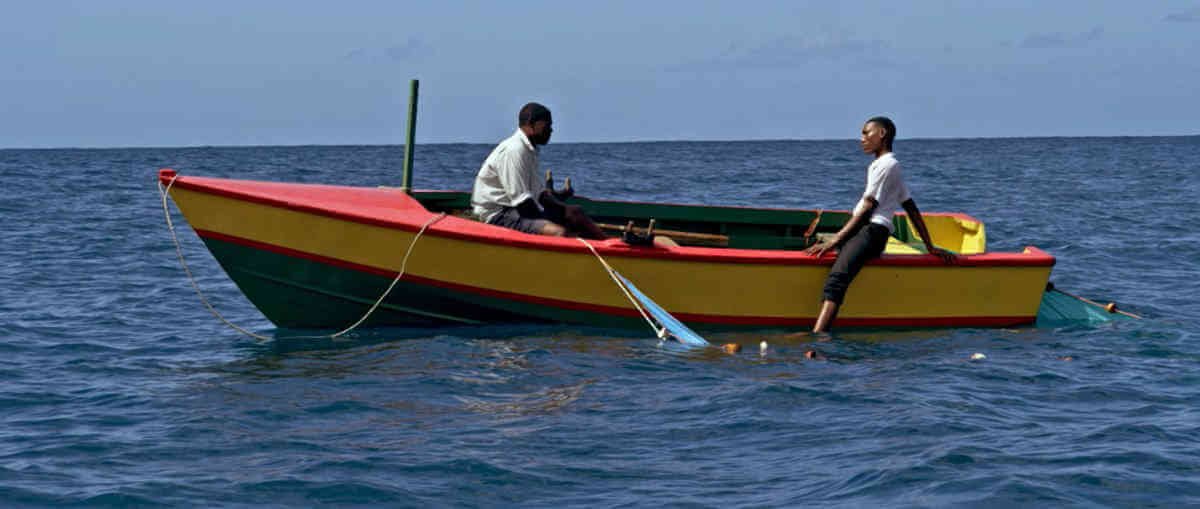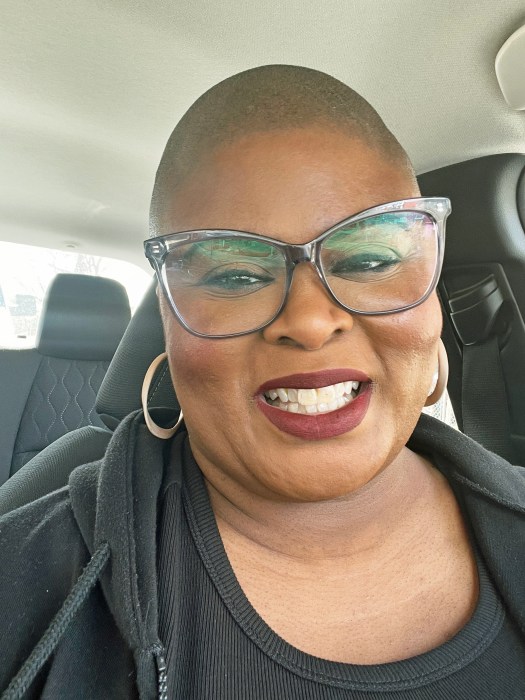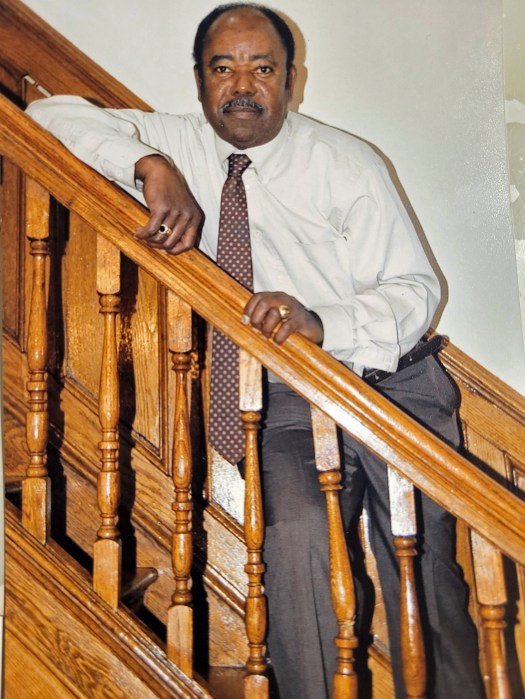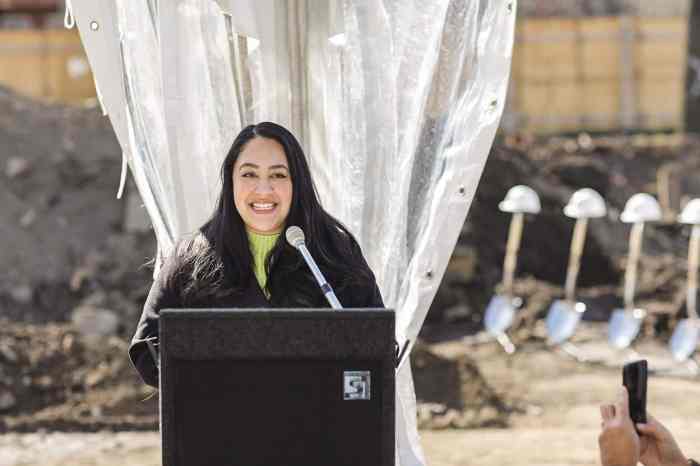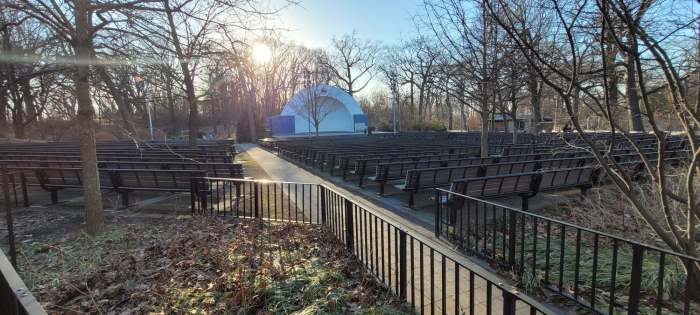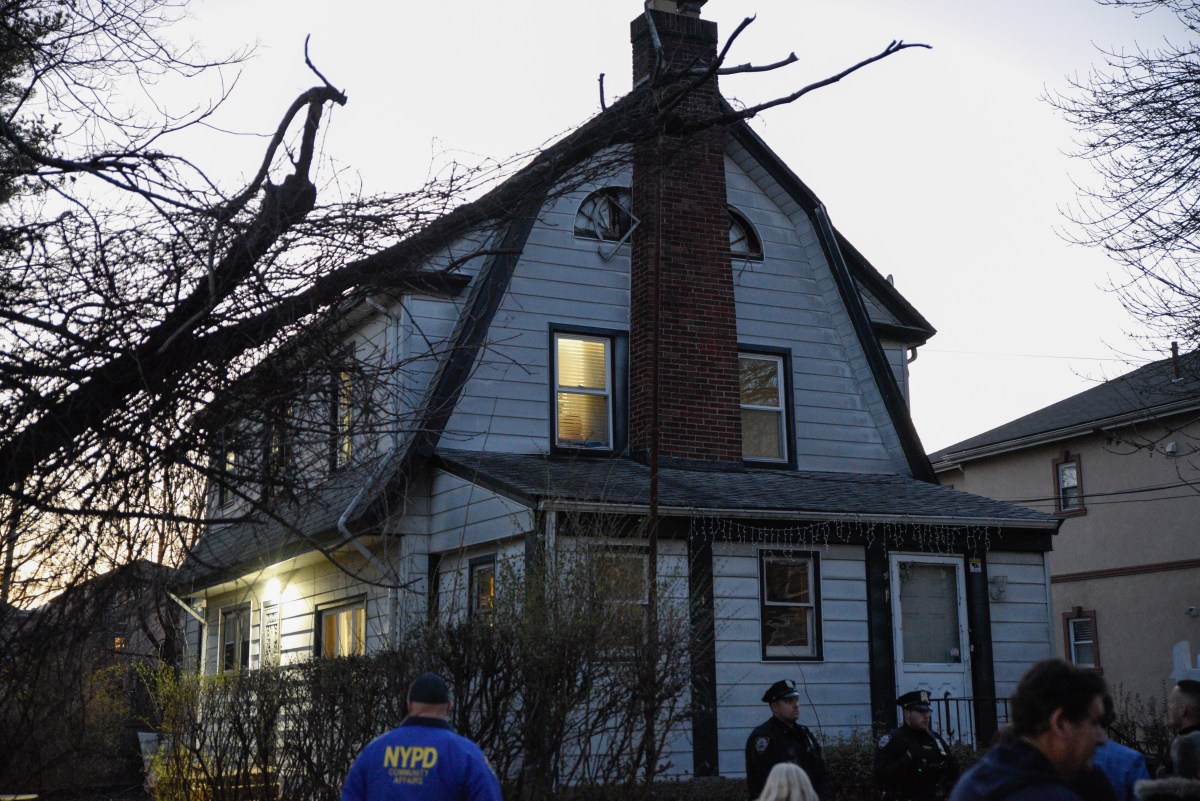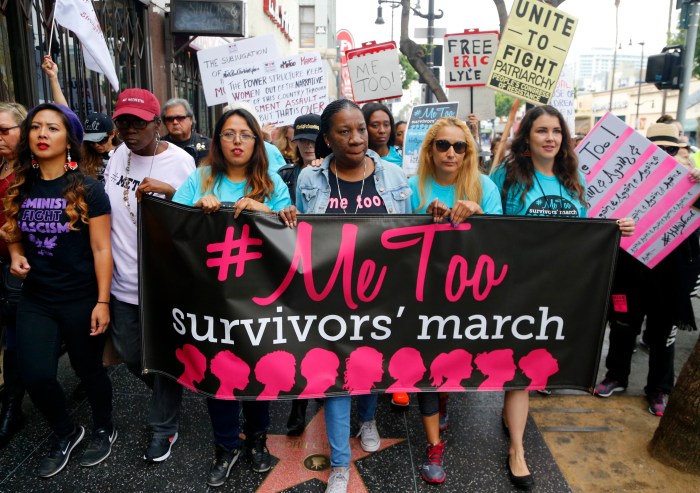Grenadian-born artist Billy Gerard Frank received loud applause for his arresting short film, “Second Eulogy: Mind The Gap,” after a special screening at Brooklyn Museum’s First Saturdays, on Feb. 1.
The autobiographical film de-construction and re-positioning of memories of his father’s life, and their complicated relationship. The movie, filmed entirely on the island of Grenada, gave a glimpse of life on the island in colonial times, and the filmmaker’s childhood experience growing up as a gay man.
“These memories became the instigator and compass of this new body of work. Sifting through my personal effects, I came across answered and unanswered letters exchanged between my father and I across continents, similar letters exchanged between him and my grandfather who had abandoned his family to live with another woman in Tobago, as well as letters exchanged between my father and his sister who migrated to America,” said Frank.
“The letters formed a pattern starting with my grandfather that marked our family’s ancestry of global seafarers and mirrored my own early escape from home, a great divide not just by water but the emotional gulf that is the spine of these personal and collective narratives of loss, grief, displacement, and longing — the hitherto narratives of diasporas and exile experience,” according to the artist’s notes.
During a Q&A, the Brooklyn-based filmmaker spoke of living aboard for many years, returning to visit his sick father, and rediscovered the beautiful Caribbean island.
“Even though it had always been in my thought process as a writer and artist, influenced by intellectuals, Derrick Walcott and Stuart Hall, returning and working with local artists was an incredible experience.”
“I hadn’t returned for a long time because of internalize homophobia, and fear for my life and my body,” said the filmmaker, who embraced the love he received from Granada, where the next generation of queer people lives freely, and with a sense of openness.
The film, he said, has good and bad experiences, and applauded the powerful knowledge he, the founder of Nova Frontier Film Festival shares by showcasing films in the diaspora, by talented artists, from the Caribbean, that has a complex rich history, and untouched art.
Frank, who shared his journey on a panel with Jamaican-born artist and activist, Renee Cox, and Jamaican-heritage artist, Christopher Udemezue, moderated by Trinidadian writer and curator, Ebony L Haynes, spoke of rituals, religion and colonial influences he grew up with in the seventies, and portrayed in the film, still present in the Caribbean.
A general audience in Grenada, and more so, the young Queer community and many intellectuals who had studied abroad and re-migrated had a positive response to the film.
“It was amazing to see the shift and change in the younger Queer generation, who had a special screening,” said Frank.
“The main thing I want audiences to take away from this film is that there are complexities and nuances of the Caribbean, the beauty, landscape, and a sense of beauty within. The film is a celebration of culture, people, and the Queer. It’s all about who we are as people from the Caribbean. We have a rich legacy of history, of slavery, colonialism, and the Caribs and Arawaks who lived there before,” shared Frank.
Frank’s work is based on research, personal, political and social histories, that explore themes of migration, race, gender and queerness, related to post colonial subjects, presented in festivals and museums internationally.
Movie Producer, Lauren Beck, thanked the audience for attending the screening to celebrate Frank, a multi disciplinary, multi-media artist, and film director.
“The experience of making this film with Billy was incredible. His spirit, and energy, during this process was incredibly invigorating.”
She thanked Susan Mains for facilitating the film’s debut at the Grenada Pavilion Biennale di Venezia, at the 29th Venice Vianale, and the Brooklyn Museum, and who, Beck called, ‘a tenacious champion of artists in the Caribbean.’
Credits
The film was shot in five production days, prior to casting, and pre production, scouting and casting was done in two days upon arrival.
The team traveled through most parishes between scouting and shooting from Gouyave to Grand Anse — where the Tower Estate in the film was shot, to St. Paul’s, St. David’s, and beyond.
The owner of The Tower Estate, Isabelle Slinger, was organically cast as the role of the mother. She also supported by lending the location. The La Boucan Creative Centre, which included the local theater company, run by Francis Urias & Ann Peters, supported through casting, art direction and wardrobe. Urias Peters starred as the father. His wife, Ann, was the production design and wardrobe hand.
Jonty was a local non-actor, who Billy auditioned.
Adam Donald, cinematographer, shot the film and island beautifully, with little support and lights made on the island, with a four-member crew.
Two of the hired crew, were local Grenadians working and learning with the red camera, gear and areas of craft, new to them. It was a great exchange for all.
James William Blades, a genius composer and sound artist from London, is new to Brooklyn.
www.james
Brian Gonzalez, editor, lives in Brooklyn. He has a deep understanding of image. He is an artist, creator, and professor.




